Manga: Gekkan Shoujo Nozaki-kun 月刊少女野崎くん (Volume 1, Chapter 3, Page 38, 御子柴くんのお仕事)
Meaning
The word beta ベタ has various meanings in Japanese.Plain
The word beta ベタ can mean something is "plain," in the sense of not having anything special or interesting about it. Something done the normal way, without tricks, the boring way.- sono mama
そのまま
As-is. Literally. Exactly like that.
Typically this is used as an adverb, for example:
- beta ni kokuhaku suru
ベタに告白する
To confess simply.- Like, just saying "I like you" to the person you like, instead of using a love letter or something more interesting.
- beta ni tsukuru
ベタに作る
To create [something] simply.- To create something normally, without anything amazing or special in it.
When talking about computers and software, programming, beta ベタ can mean something is done using plain text, rather than more complex editing software.
- beta ni kaku
ベタに書く
To write in plain text.- For example, to write HTML using Notepad++, or to output HTML in a programming language by simply concatenating strings, rather than using a templating library.
"Cliché"
The word beta ベタ can also mean something is "cliché," or "clichéd." That is, something that is so terribly common that it appears to lack originality, and since it lacks originality, it's uninteresting, it's boring, unfunny, and so on.- neta
ネタ
Content or ideas used as basis for something. - tenpure
テンプレ
Template. - kopipe
コピペ
Copy-paste. Something that's copy-pasted. A copypasta.
This word is typically used in two ways:
- To criticize something for being unoriginal and relying on overused plot developments. See also: the isekai 異世界 genre.
- beta na tenkai
べたな展開
A clichéd development. - beta na ochi
ベタなオチ
A clichéd punchline.
A clichéd outcome.
- beta na tenkai
- To express you disbelief that something so ridiculously clichéd could ever actually happen.
If you think about it, these two usages are sort of contradictory. After all, something clichéd happens a lot, so why would you think that something clichéd is unlikely to happen?
That's because, in fiction, clichés are often unrealistic, so they're likely in fiction, but unlikely in reality.
For example, a common trope is by chance having an encounter with a random girl (or another character) before going to school, and then in class it turns out that character is a transfer student.
Realistically, the odds of that happening are thin, but in fiction it happens a lot.
Manga: School Rumble, スクールランブル (Chapter 16, Wild Party)
- Context: girls get together.
- so, sore de saa
そ それでさぁ
[And, and you see].- sore de
それで
And then. After that.
With that. Given that. (used to continue a conversation.) - saa
さぁ
You see. You know. (interjection.)
- sore de
- tsuide ni kikitai-n-dakedo...
ついでに訊きたいんだけど・・・
[There's something] [I] want to ask, [since we're at it].- tsuide ni
ついでに
Incidentally. Since we're at it.
- tsuide ni
- ko, kokuhaku tte minna nara doo yatte suru?
こ 告白ってみんなならどーやってする?
Confessing [to someone you love], how would [you] do [it] if it were [you]? - etto... watashi no tomodachi de kokuhaku suru noni nayandete saa
えっと・・・私の友達で告白するのに悩んでてさ~~
Erm... my friend is having trouble confessing, [you see]~~ - boribori
ぼりぼり
*munch munch* - ho'hoon
ほっほ~~ん
(A Santa laugh-like sound, typically used when examining something intriguing.) - souiu koto... ka
そういうコト・・・か
[That's how it is, huh.] - naruhodo... ne
なるほど・・・ね
[Oh, I see.] - nante beta na...
なんてベタな・・・
What a clichéd... [thing to say.]- Asking for help with a personal problem, but saying it's not you who is having the problem, it's your unnamed "friend,"
who, naturally, nobody knows, because they go to another school, in Canada,is very clichéd.
- Asking for help with a personal problem, but saying it's not you who is having the problem, it's your unnamed "friend,"
This sense is sometimes used adverbially. For example:
- beta ni pan wo kuwae nagara hashiru
ベタにパンを咥えながら走る
Clichéd-ly running with a bread in [your] mouth.- chikoku~~!
遅刻~!
[I'm going to be late for school]~!
- chikoku~~!
Contact Print
The word beta ベタ can be an abbreviation of beta-yaki ベタ焼き, which means a "contact print" in photography. This word can also refer to a dish: a pancake topped with vegetables.The verb yaku 焼く means "to cook," "to burn." In traditional photography, light-sensitive chemicals react to light and burn onto paper to create an image, called the negative, whose colors are literally the opposite of what you want.
- nega
ネガ
Negative. - yaki-tsukeru
焼き付ける
To burn-and-attach.
To burn on.
Typically, the negative is placed into a projector and enlarged into a photo. In a contact print, however, the negative is placed in "contact" with the photographic paper, so the photo becomes the same size as the negative.
The word beta ベタ here is probably used because you just develop (i.e. burn) the photo as-is, simply, just like that, without using something extra like a projector.
Solid Typesetting
The word beta ベタ can also mean beta-kumi ベタ組み, which translates to "solid typesetting."In Japanese, tsume-kumi 詰め組み, "stuffing and putting together," is the term for laying out letters, characters side by side in a text.
Typically, glyphs are laid out with a space, a margin, between one glyph and the next. This spacing is called "kerning." The term for spacing between lines is called "leading" by the way.
Laying them out without kerning would be the simple way to do it, i.e. the beta ベタ way to do it.
"Completely"
The word beta ベタ can also mean "completely," "totally," often in the sense of leaving no gaps, like covering a surface "entirely." For example:- ao wo beta ni nuru
青をベタに塗る
To "smear" blue entirely. (literally.)
To paint [something] entirely with blue.- In the hence of homogeneously blue, just one color: blue. If there's something drawn on it, even if it's with a shade of blue, then it's not beta ベタ anymore.
- konshuu wa beta ni yotei ga tsumatte-iru
今週はべたに予定が詰まっている
This week is entirely filled with appointments. (literally.)
This week's schedule is full. (no gaps for new appointments.)
Prefix
The word beta べた is often used in the sense of "completely" as a prefix. For example:- beta-bore
べた惚れ
Completely fallen in love.- horeru
惚れる
To fall in love. - ho ほ becomes bo ぼ due to rendaku 連濁.
- horeru
- beta-bome
べた褒め
Completely praised.- homeru
褒める
To praise someone.
- homeru
- beta-make
べた負け
Completely defeated.- makeru
負ける
To be defeated. To lose a fight.
- makeru
- beta-ori
ベタオリ
In Mahjong: completely giving up a match. Specifically, discarding only safe tiles to avoid losing points, rather than building a winning hand to win points.- There are typically at least eight matches per game, and four players. Normally, the winner doesn't need to win all matches. In fact, winning big once and then going full defense for the rest of the game is a legitimate strategy.
- oriru
降りる
To drop. (as in to fall.)
To step down. (as in to drop out of a race, to abandon a post, to give up.)
Black Ink
In manga, beta ベタ refers to filling an area with a single color, specially the black color in monochrome manga. This is done either by using black ink or with pure black screentones.- kuro-beta
黒ベタ
Black-completely.
To pain something entirely with black.
Manga: Gekkan Shoujo Nozaki-kun 月刊少女野崎くん (Volume 1, Chapter 3, Page 38, 御子柴くんのお仕事)
- Context: Nozaki 野崎 is a manga author with two assistants: Sakura 佐倉 and Mikoshiba 御子柴. Sakura's job is filling areas with black ink. Sakura has doubts about what Mikoshiba's job is supposed to be, so Nozaki says:
- yatte-mita hou ga hayai kamo na
やってみた方が早いかもな
Doing [it] [once] may be faster. (than explaining it with words.) - mazu ore ga hito wo kaku
まず俺が人を描く
First, I draw a person. - eeto, Sakura, beta, owarimashita
えーと 佐倉 ベタ 終わりました
Erm, Sakura, black ink, finished.
By the way, a "beta flash," or beta-fura ベタフラ, is a flash of light rendering by painting the rest of the panel black.
Manga: Assassination Classroom, Ansatsu Kyoushitsu 暗殺教室 (Chapter 1, 暗殺の時間)
- nyari
ニャリ
*grin*
Other related terms:
Manga: Bishoujo Senshi Sailor Moon, 美少女戦士セーラームーン (Chapter 6, タキシード仮面 Tuxedo Mask, Altered)
- tsuya-beta
ツヤベタ
"Glossy beta." The term for highlights rendered on the hair of characters by painting most of the hair black, except the highlight.
Character: Shinkouhyou 申公豹
Manga: Houshin Engi 封神演義 (Chapter 8, 序章の終わり)
Manga: Houshin Engi 封神演義 (Chapter 8, 序章の終わり)
- beta-me
ベタ目
"Beta eyes." Eyes drawn in manga using just the color black, without highlights or gradients.
- shiro-nuki
白抜き
"White-extracting." Something that's drawn in white color on a black background, e.g. white letters on a black background.
"Sticky"
The word beta ベタ doesn't mean "sticky," but it's part of words that do mean "sticky."- betabeta
ベタベタ
*sticky* *glue-y* (reduplication)
Very clichéd, etc.- betabeta na secchaku-zai
ベタベタな接着剤
A sticky adhesive.
- betabeta na secchaku-zai
- betatto
ベタっと
Stickily. (adverb.)- betatto tsuite-iru
ベタっと付いている
To attach stickily. To glue on.
- betatto tsuite-iru
- beta-tsuku
べた付く
To stick to. To glue onto.
To be sticky. (because it glues on your fingers, etc.)
Manga: Bishoujo Senshi Sailor Moon, 美少女戦士セーラームーン (Chapter 1, うさぎ SAILOR MOON)
- Context: two girls press their hands and face against the glass pane of a store to see what's inside.
- bettaa
べったあ
*sticking to the pane*
Fish
The word beta ベタ can also refer to a sort of fish: the betta. Its native Japanese name is:- tougyo
闘魚
"Fighting fish." (literally.)
Betta. (genus.)
Greek Letter
For completeness, "beta" as in the "beta version," or alpha and beta, is katakanized with a long vowel in Japanese:- beeta
ベータ
Beta. β. - beeta-ban
ベータ版
Beta version.
See Greek letters for the whole list.
References
- べた - kotobank.jp, accessed 2020-04-02.
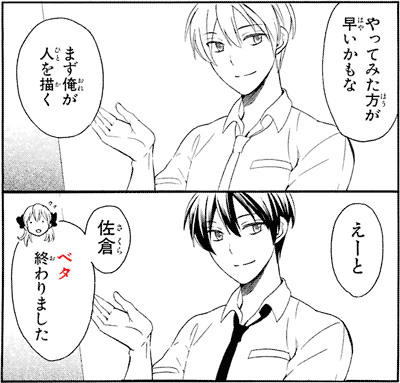
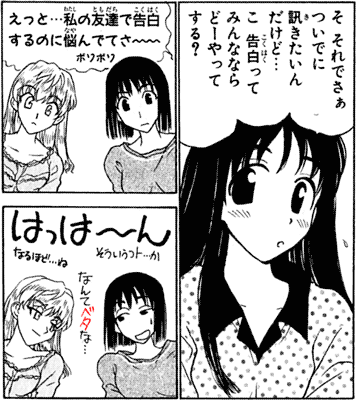
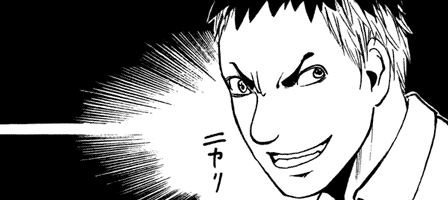
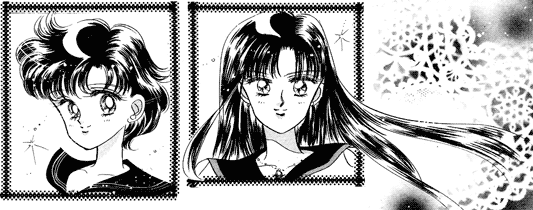
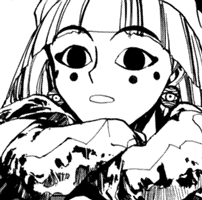
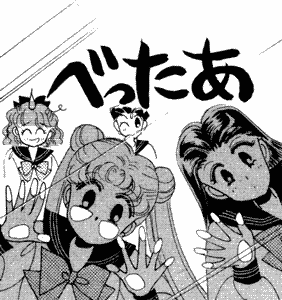
No comments: